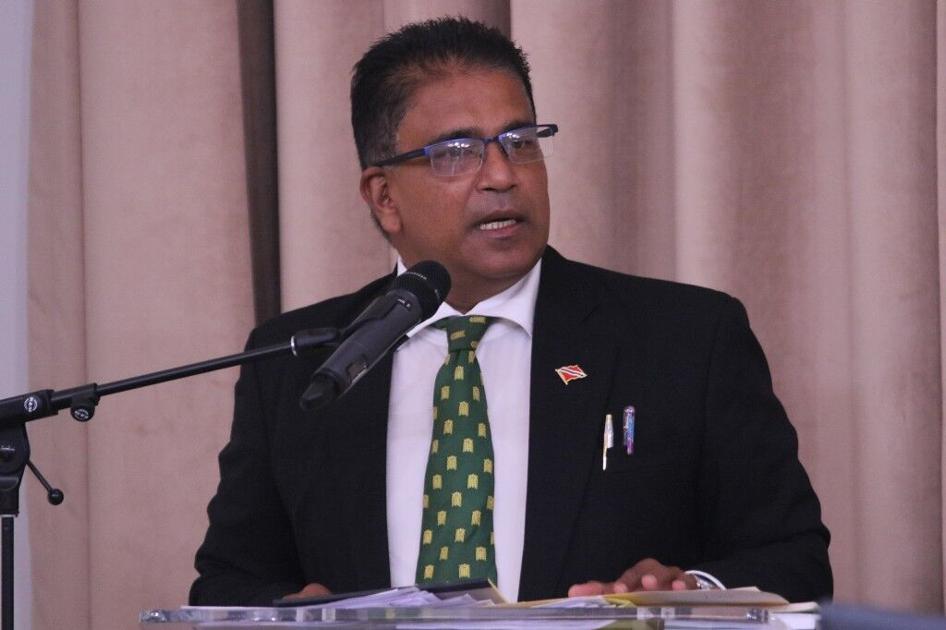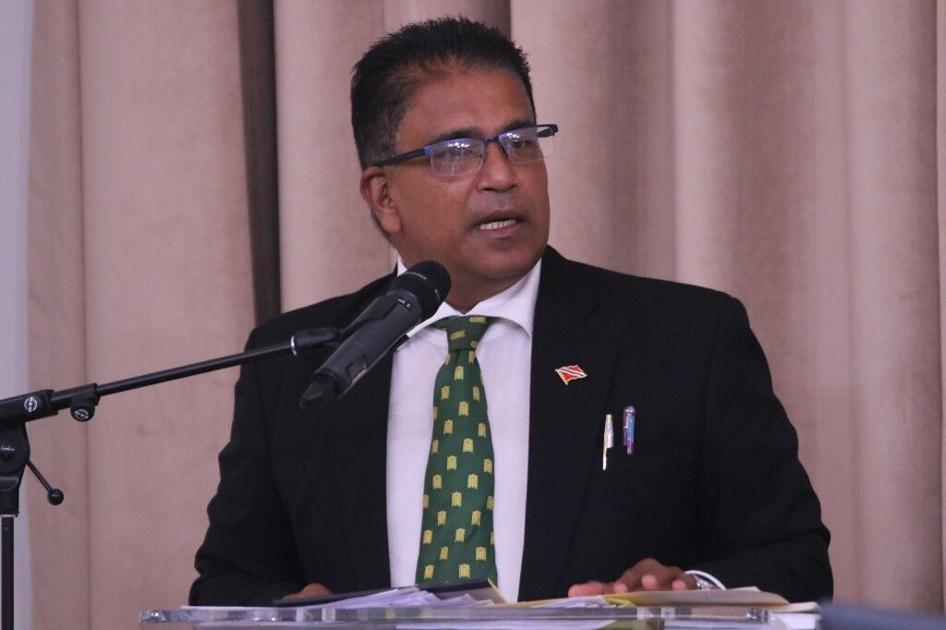
Oropouche East MP Dr Roodal Moonilal is exploring what legal action can be taken against a decision by the Government to impose a proviso in the appointment of members to the Joint Select Committee (JSC) on National Security.
Seventeen parliamentary committees met virtually and in camera yesterday. And while it was historic that 17 committees met in one day, appointed their chairmen, and began to populate their calendars, there were opposition objections on the process by which the membership for the JSC on National Security was approved by the House of Representatives and the Senate.
In putting the motion for the membership of the JSC for National Security to be approved, the leaders of Government Business in the House and the Senate (Camille Robinson-Regis and Franklin Khan) added a proviso which gives the committee the right to remove a member whom it deems has a conflict of interest.
Moonilal said yesterday that proviso “came like a thief in the night”.
“This is a serious and diabolical plan by the PNM to remove Opposition members from committees of Parliament… by giving the committee of National Security the power to remove someone whom the PNM majority deems to be conflicted, without recourse to the House of Representatives. That is a serious undermining of the Constitution and the rule of law,” he said.
He said the proviso was not done via motion or debate and constituted an “overthrowing of the Constitution of Trinidad and Tobago. Parliament cannot disqualify someone from the service of the House. The Constitution provides for the qualification of a Member of Parliament. Someone can only leave a Committee of the House if the Committee of Privileges deem that they have violated the Standing Orders and brought the House into odium and disrepute…So this is a serious act, they (the Government) has started on a dictatorial path. Today it is (the JSC on) National Security, tomorrow it could be another committee. And eventually they (the Government) could have the entire Opposition disqualified from committees of parliament as they continue their corruption and mismanagement,” he said.
Moonilal, who is a member of the JSC on National Security and who attended yesterday’s meeting of the committee, said he was being targeted because he has been outspoken and willing to confront the Government on matters of corruption and mismanagement. “So they will deem me and others like me to be conflicted on matters,” he said, adding that a conflict of interest was a subjective matter.
“This is a Maduro-style approach to governance,” he said.
He said he intends to raise the matter with the Commonwealth Parliamentary Association and the International Parliamentary Union. “I intend to internationalise this matter,” he said, adding that it was a “dark day for democracy”. “Our lawyers are looking at it to see what are the legal options available,” he said.
Lee writes the Speaker
Opposition Chief Whip David Lee raised objections over the issue in a letter to House Speaker Bridgid Annisette-George, taking issue with the proviso which reads: “Provided that any member who the committee by a majority determines has a conflict of interest, be disqualified from the committee without recourse to the House” [the person is a member of the Committee], was approved along with the membership of the Committee.
In his letter, Lee stated that in none of the Standing Orders which govern the regulation of the conduct of parliamentary business is there the ability for any JSC to remove a member in accordance with “this newly imposed recommendation that the Leader(s) of Government indicated”.
“It is totally unethical and a clear contravention of the parliamentary process that the powers stated within the Standing Orders can be amended or adjusted unilaterally without the approval of the House via a motion requesting such, but by a simple announcement as was done in this case,” he said.
Lee quoted from Section 38.7 Erskine May Parliamentary Practice which states that a member (other than a Chair elected by the House) cannot formally resign from a committee and thus remains a member of the committee unless and until a motion discharging them from membership is agreed to by the House”.
Unethical attempt
Lee said the “imposition” by Robinson-Regis for the JSC on National Security to have the power to remove a member “violates proper parliamentary protocol as it excludes the needed concurrence of the elected House of Representatives which these committees report to.
“Without any clear definition on the term ‘conflict’, Opposition members can be easily victimised, especially in the event that pertinent issues on national security arise,” Lee stated.
He said the Opposition was seeking “urgent clarification on this unethical attempt to infringe our parliamentary process, contravene the regulations of our standing orders and more importantly introduce measures which will hinder the democratic operations of our parliamentary organs”.
The JSC Committee had set a precedent in the last session when it asked the House of Representatives to remove Moonilal from the Committee after he refused to recuse himself from deliberations on a matter on which the Committee deemed he had a conflict of interest. That matter involved an inquiry into statements by Minister of National Security Stuart Young that certain opposition politicians had an association with criminal gang elements.








